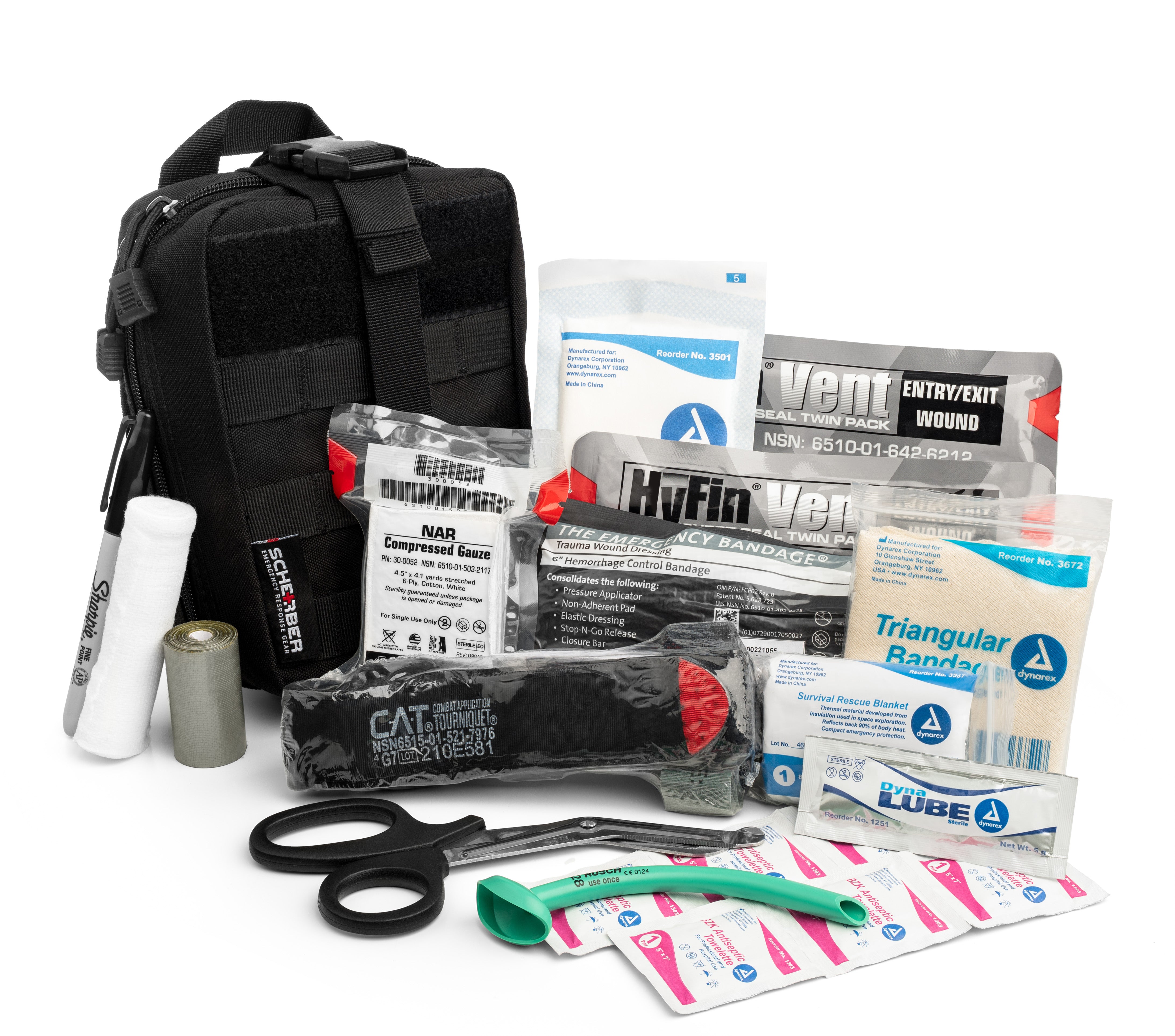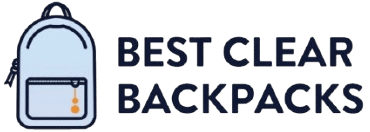An Individual First Aid Kit (IFAK) is crucial for safety at work. It can be a lifesaver in emergencies.
Having an IFAK in your work backpack ensures you’re always prepared. Accidents can happen anytime, anywhere. A well-stocked IFAK helps you handle minor injuries or serious emergencies until help arrives. From cuts and burns to more severe injuries, an IFAK provides essential supplies.
It’s compact and fits easily in your backpack. This convenience means you carry safety with you every day. Investing in an IFAK shows you care about your well-being and that of others. It’s a small step, but it makes a big difference. Stay prepared, stay safe.

Credit: scherberusa.com
Contents
Importance Of Workplace Safety
Workplace safety is crucial for every employee. It ensures a secure and healthy environment. Having an Individual First Aid Kit (IFAK) in your work backpack can save lives. Employees face various risks at work. Being prepared can make a big difference.
Risk Factors In Various Professions
Different jobs come with different risks. Construction workers face the risk of falls and heavy machinery injuries. Office workers may suffer from repetitive strain injuries or slips and falls. Healthcare professionals risk exposure to diseases and physical assaults. Factory workers deal with machinery accidents and chemical spills. Even retail workers can face risks like cuts and robberies.
Preventive Measures
Employers should provide safety training. This helps employees understand potential hazards. Regular drills can prepare workers for emergencies. Providing proper equipment reduces the chance of accidents. Encourage employees to report unsafe conditions. This can prevent incidents before they happen. Always have an IFAK in your work backpack. It can provide immediate aid during an emergency. Knowing how to use it is equally important. Take a first aid course to be prepared.
Introduction To Ifak
An Individual First Aid Kit (IFAK) in your work backpack ensures you’re ready for emergencies. It contains essential medical supplies for quick response. Stay prepared and safe at work.
An Individual First Aid Kit (IFAK) is a vital addition to any work backpack. It ensures you are prepared for emergencies. Accidents can happen at any time. Having an IFAK can make all the difference.
What Is An Ifak?
An IFAK is a compact kit. It contains essential medical supplies. These supplies help treat injuries on the spot. Common items include bandages, gauze, and antiseptic wipes. It also has tools like scissors and tweezers.
Historical Background
The concept of the IFAK originated in the military. Soldiers needed a reliable way to treat wounds in the field. Over time, the IFAK evolved. It became a standard issue for many forces. Today, it is widely used in various sectors. Workplaces now recognize its importance. Having an IFAK in your work backpack is crucial. It prepares you for unexpected situations. “`
Key Components Of An Ifak
An Individual First Aid Kit (IFAK) for your work backpack is essential. It helps you handle emergencies with confidence. Knowing its key components is crucial. It ensures you are prepared for any situation.
Basic Medical Supplies
First, let’s look at the basic medical supplies. These are the items you will use most often. Bandages are essential for treating cuts and scrapes. Include various sizes to cover all needs. Sterile gauze pads help with larger wounds. They keep the area clean and prevent infection. Adhesive tape secures the gauze in place. It’s a simple yet vital tool.
Antiseptic wipes clean wounds before dressing them. They reduce the risk of infection. Include a good supply. Pain relievers like aspirin or ibuprofen are also important. They help manage pain until professional help arrives. Scissors are needed to cut bandages or tape. Make sure they are sharp and easy to use. Tweezers help remove splinters or debris from wounds. A first aid manual provides guidance on using these supplies. It’s a valuable resource in stressful situations.
Advanced Tools
Some situations require advanced tools. These items go beyond basic care. A tourniquet can be life-saving in severe bleeding cases. It helps control blood loss until help arrives. Include one in your IFAK. Hemostatic agents are also crucial. They promote rapid clotting of blood. Use them for deep cuts or heavy bleeding.
CPR masks protect you while performing mouth-to-mouth resuscitation. They are compact and easy to use. Include a pair of medical gloves. They protect you and the patient from infections. A splint is useful for stabilizing broken bones. It helps prevent further injury. Include a space blanket. It helps maintain body temperature in shock or hypothermia cases.
Remember to regularly check and update your IFAK. Replace expired items. Add new supplies as needed. Being prepared can make a huge difference in emergencies.
Choosing The Right Ifak
Choosing the right Individual First Aid Kit (IFAK) for your work backpack is crucial. A well-equipped IFAK can make all the difference in an emergency. But how do you choose the right one?
Assessing Your Needs
First, assess your needs. What environment will you be in? Different workplaces have different risks. Office workers might need basic supplies. Construction workers might need more trauma-related items.
Consider the size of the kit. It should fit comfortably in your backpack. Also, think about your personal medical needs. Do you have allergies or conditions requiring special items? Customize your IFAK accordingly.
Top Brands
Several brands offer high-quality IFAKs. North American Rescue is a popular choice. They offer durable kits with essential items. Adventure Medical Kits is another trusted brand. They provide comprehensive kits for various environments.
MyMedic is known for their user-friendly kits. They focus on making first aid accessible. Check reviews and ratings. Choose a brand with a good reputation. Quality and reliability are key.
Customizing Your Ifak
Customizing your Individual First Aid Kit (IFAK) for your work backpack is essential. It ensures you have the right tools for any emergency. Personalization can make a big difference. Tailor your IFAK to your specific needs and environment.
Personalized Items
Start with personalized items. Include any medication you need daily. This can be life-saving in an emergency. Add a list of emergency contacts. Ensure they are up-to-date and easy to read. Consider adding a small note with your blood type and any allergies. This can help medical personnel treat you quickly.
Specialized Equipment
Consider specialized equipment based on your work environment. If you work in construction, add a tourniquet and heavy-duty bandages. Office workers might need more antiseptic wipes and adhesive bandages. Think about your daily risks and customize accordingly.
Include tools like a multi-use knife or scissors. These can be handy in various situations. A flashlight is another useful item. It helps in low-light conditions and can signal for help.
Reflective tape or a small signal mirror can also be valuable. They increase your visibility in emergencies. Pack a whistle to draw attention if needed. These small additions can make a big impact.
Packing And Organizing Tips
Keeping your Ifak work backpack neat and organized can boost your productivity. Proper packing techniques ensure you have everything you need, when you need it. Below are some tips to help you pack and organize your backpack effectively.
Efficient Packing
Efficient packing starts with choosing the right items. Only pack what you need daily. This reduces clutter and makes your bag lighter.
- Use packing cubes to keep items separated.
- Roll your clothes to save space.
- Use small pouches for accessories and cables.
Arrange heavier items at the bottom. This provides a stable base and prevents your bag from tipping over.
Place frequently used items on top. This allows quick access without unpacking everything.
Accessibility
Accessibility is crucial in a work backpack. You should be able to find items quickly.
| Item | Location |
|---|---|
| Laptop | Dedicated laptop sleeve |
| Notebook | Front pocket |
| Pen and charger | Side pockets |
Use the backpack’s compartments wisely. Keep similar items together to avoid searching through your bag.
Labeling the compartments can help. This makes it easier to remember where items are stored.
By following these tips, you can keep your Ifak work backpack organized and ready for any task.
Training And Preparedness
Having an Individual First Aid Kit (IFAK) in your work backpack is essential. But knowing how to use it is equally important. Proper training and regular practice can make all the difference in an emergency. Let’s dive into why training and preparedness are crucial.
First Aid Training
First aid training is the foundation of preparedness. Knowing how to use your IFAK can save lives. Many organizations offer first aid courses. Red Cross, local hospitals, and community centers are good places to start.
Here are some key skills to focus on:
- CPR (Cardiopulmonary Resuscitation)
- Bleeding control techniques
- Wound care and bandaging
- Managing fractures
- Recognizing and treating shock
These skills ensure you are ready to act swiftly and effectively. Practice these skills regularly to keep them fresh in your mind.
Regular Drills
Regular drills are vital for maintaining readiness. They help reinforce your training and build muscle memory. Consider setting up monthly or quarterly drills with your team or family.
Here are some ideas for drills:
- Simulate different emergency scenarios
- Practice using your IFAK items
- Time your response to each scenario
- Review your performance and identify areas for improvement
These drills should cover various situations. Think of accidents, natural disasters, or medical emergencies. Make sure everyone knows their role and responsibilities.
Training and preparedness are essential for using your IFAK effectively. Invest time in learning and practicing first aid. It can make a significant difference in an emergency.
Credit: www.amazon.com
Maintenance And Inspection
Regular maintenance and inspection of your Ifak for Work Backpack is crucial. It ensures all items are in good condition. And ready for use. This process involves checking expiry dates, replacing used items, and more.
Checking Expiry Dates
Expiry dates are essential. They ensure the effectiveness of medical supplies. Always check the expiry dates of items in your Ifak. This includes medications, antiseptics, and bandages.
Here’s a simple checklist:
- Medications
- Antiseptics
- Bandages
- Ointments
Expired items lose their potency. Replace them immediately.
Replacing Used Items
After using any item from your Ifak, replace it as soon as possible. This keeps your kit fully stocked. Ready for emergencies.
Follow these steps:
- Identify used items.
- Make a list.
- Purchase replacements.
- Restock your Ifak.
Ensure all items are in their designated spots. An organized kit saves time during emergencies.
Credit: www.amazon.com
Frequently Asked Questions
What Should Be In An Ifak For Work?
An IFAK should have bandages, antiseptic wipes, gloves, scissors, and painkillers. Always check for expiry dates.
Why Carry An Ifak In A Work Backpack?
Carrying an IFAK at work ensures you’re ready for minor injuries. Safety first.
How Often Should I Check My Ifak?
Check your IFAK every six months. Replace expired items promptly for safety.
Conclusion
Having an IFAK in your work backpack is essential. It ensures safety and preparedness. Emergencies can happen anytime. A well-stocked IFAK can save lives. Choose one that fits your needs. Prioritize quality and practicality. Your peace of mind is worth it.
Stay ready and equipped. Your safety matters.


